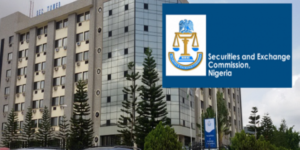
Despite worries about economic challenges in the country, AXA Mansard Insurance Plc has recorded a Gross Written Premium of N60.20bn in its business transactions in 2021.
The insurer at the weekend disclosed in its financial statement made available to The Guardian that the new development represents 27 per cent growth from the N47.58 billion it made in December 2020.
According to the company, the Net Premium Income stood at N37.14bn, up by 17 per cent from N31.72 billion in December 2020, Investment and Other Income stood at N6.25bn, down by 12 per cent from N7.09bn in December 2020.
Operating Expenses of N9.41bn, showed22 per cent increase from N7.71bn in December 2020 while Profit before Tax stood at N5.78bn, a 4 per cent decrease from N6.04bn recorded in December 2020.
Similarly, Profit after Tax stood at N3.74 billion, down17 per cent from N4.50bn in December 2020.
Commenting on the financial performance of the company for the year ended December 2021, the Chief Executive Officer, AXA Mansard Insurance, Kunle Ahmed, said “We delivered strong revenue growth across all our business lines despite the challenging macroeconomic terrain and yield environment.
According to him, the strong revenue growth would have been impossible without the support of our customers and partners and we are immensely grateful. The growth in net claims is also a reflection of our financial ability to meet the promise we made to policyholders.
He said AXA Mansard Insurance had continued to be an exceptional insurer with great financial strength and excellent underwriting capabilities.
According to him, this has been shown over the years by the organisation’s exceptional financial and technical capabilities.”
Also speaking on the results, the Chief Financial Officer, Mrs Ngozi Ola-Israel, said, “The business delivered strong growth across various indices, Gross written premium grew by 27 per cent YoY from N47.58bn to 60.2b and improved underwriting efficiency underpinned by N9.23bn in underwriting profit, growing 24 per cent YoY from N7.44bn.
She explained that the decline of 4 and 17 per cent respectively in the PBT and PAT was largely driven by fair values losses and non-recurrence of gain on disposal of a subsidiary in the previous year.








